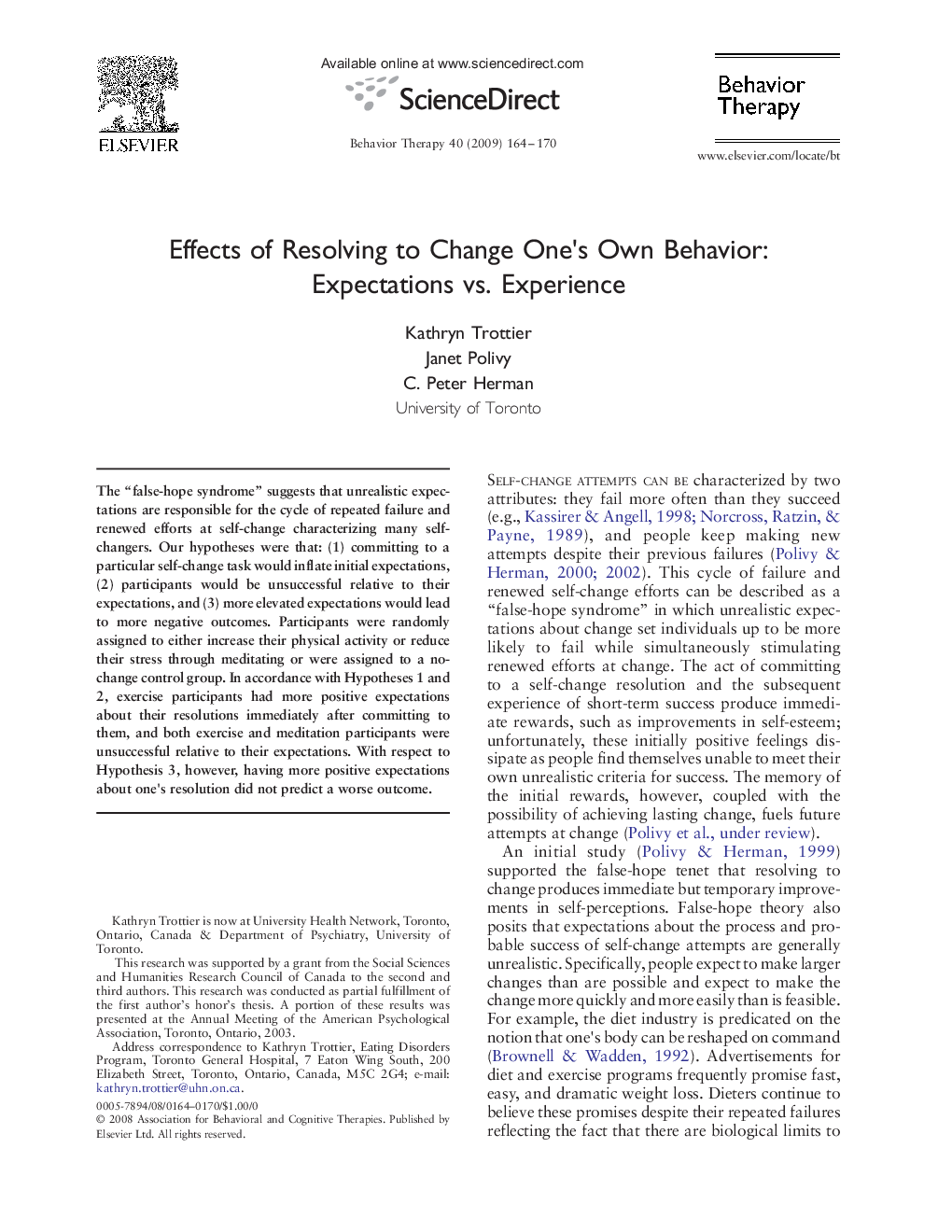| Article ID | Journal | Published Year | Pages | File Type |
|---|---|---|---|---|
| 901644 | Behavior Therapy | 2009 | 7 Pages |
The “false-hope syndrome” suggests that unrealistic expectations are responsible for the cycle of repeated failure and renewed efforts at self-change characterizing many self-changers. Our hypotheses were that: (1) committing to a particular self-change task would inflate initial expectations, (2) participants would be unsuccessful relative to their expectations, and (3) more elevated expectations would lead to more negative outcomes. Participants were randomly assigned to either increase their physical activity or reduce their stress through meditating or were assigned to a no-change control group. In accordance with Hypotheses 1 and 2, exercise participants had more positive expectations about their resolutions immediately after committing to them, and both exercise and meditation participants were unsuccessful relative to their expectations. With respect to Hypothesis 3, however, having more positive expectations about one's resolution did not predict a worse outcome.
